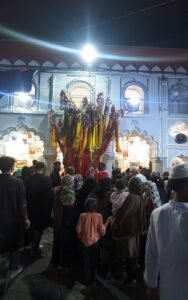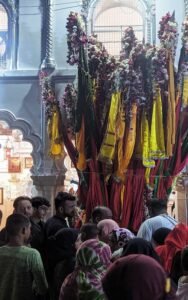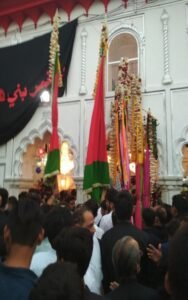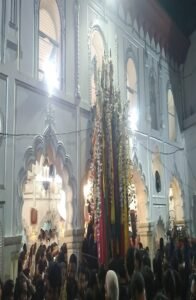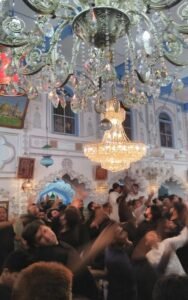Dost Ali House Overview
Dost Ali House in Amroha stands as a venerable testament to a cultural heritage spanning over 2000 years, weaving a rich tapestry of history. Nestled in the heart of Uttar Pradesh, it serves as a hub for intellectual pursuits and community service, producing a lineage of scholars dedicated to knowledge and community welfare. Amroha, renowned for its annual Muharram procession, Shah Vilayat Dargah, Amroha Azadari, and luscious mangoes, finds its soul deeply entwined with Dost Ali House.
As a silent witness to the ebb and flow of time, Dost Ali House’s foundations are imbued with the wisdom and traditions passed down through generations. The legacy of scholarly pursuits within the Shia community not only enriches Amroha’s intellectual landscape but also plays a pivotal role in shaping the cultural and educational ethos of the region.
Dost Ali House distinguishes itself through an unwavering commitment to community welfare. Breaking free from religious or caste distinctions, it spearheads initiatives for upliftment, education, and empowerment. The philanthropic endeavors of Dost Ali House transcend narrow boundaries, embodying a spirit of compassion and dedicated service to humanity.
Azadaari at Dost Ali House
Dost Ali House holds an unparalleled significance globally, particularly during the sacred month of Muharram. The Amroha Azadaari transforms into a hallowed venue where Muharram rituals unfold, providing a sacred space for the community to unite in commemorating the martyrdom of Imam Hussain, the revered grandson of Prophet Muhammad, in the Battle of Karbala.
Throughout Muharram, the Azadaari at Dost Ali House emerges as a focal point for spiritual introspection and communal solidarity. Hosting gatherings, Majlis, and processions, it becomes a sanctuary where individuals can openly express their grief and collectively mourn the tragic events of Karbala.
Dost Ali House transcends its role as a mere repository of historical legacy; it stands as a living testament to enduring values of knowledge, community, and religious observance. It remains a cherished cultural asset, fostering a sense of continuity, identity, and shared purpose among the people of Amroha.
